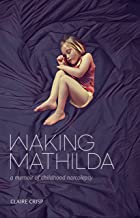Narcolepsy
A chronic sleep disorder that causes overwhelming daytime drowsiness.
The cause of narcolepsy isn’t well understood but may involve genetic factors and abnormal signaling in the brain.
Narcolepsy causes sudden attacks of sleep. Sudden loss of muscle tone and hallucinations might occur.
Stimulants, antidepressants, and other medications can help.
Cluster Number:
Wiki Number: PW130
Diagnosis: Narcolepsy
US Patients: Estimated to affect 200,000, but only 50,000 diagnosed.
World Patients:
Sex Ratio:
Age Onset: Adolescence and early adulthood
Brain Area:
Symptoms: Inability to regulate poor-quality sleep-wake cycles and brief, involuntary sleeping; 70% have catalepsy-sudden muscle weakness;
Progression: The Wikipedia article lists a number of genes and chromosomes regulating sleep, too complex for this overview.
Causes: family history 10%; loss of orexin neurons (which regulate sleep and wakefulness) in the lateral hypothalamus
Medications: Several other medications are being developed.
Therapies: regular short naps & sleep-hygiene=quiet bedroom, bed for sleep and sex only; regular bedtimes.
Youtube Video: What is Narcolepsy?
Amazon or Library Book:
My Dad Naps, Too!
Amazon or Library Book:
Waking Mathilda
Click the book to link or buy from Amazon.
Click the book to link or buy from Amazon.


